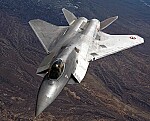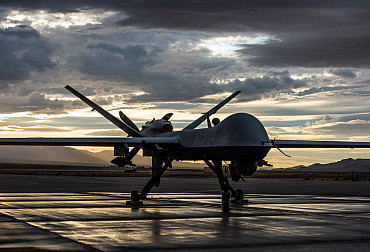Pentagon awards Lockheed Martin $11.8 billion contract for F-35 production amid budget uncertainty
The Pentagon has awarded Lockheed Martin an $11.8 billion undefinitized contract for the production of F-35 Joint Strike Fighters, a move that keeps the critical stealth fighter program alive despite ongoing challenges in finalizing agreements. The deal, which represents production lot 18, covers 145 aircraft for the U.S. Air Force, Marine Corps, Navy, and foreign customers.
A Critical Step for the F-35 Program
The contract is "undefinitized," meaning the exact dollar values and quantities could shift as negotiations continue. This marks a significant milestone for the F-35 Joint Program Office (JPO), which has faced delays due to inflation and other complexities. Russ Goemaere, a spokesperson for the JPO, stated that the Pentagon expects to finalize the lot 18 agreement by spring 2024. Meanwhile, a similar contract for lot 19 is contingent on the fiscal 2025 budget, anticipated for approval no earlier than March 2024.
The deal comes after a year of impasse between the Pentagon and Lockheed Martin, who originally aimed to settle agreements for both production lots 18 and 19 in 2023. A provisional "handshake" deal was reached in November, but exact terms have yet to be defined.
Navigating Financial and Operational Challenges
Lockheed Martin officials have stressed the importance of securing this contract to maintain production momentum. The company has resorted to partial self-funding to keep assembly lines operational during delays. The injection of funds from the Pentagon ensures continuity and stability for the program, which remains one of the most complex and controversial military procurement initiatives in history.
Inflation, supply chain constraints, and political scrutiny have only amplified the challenges facing the F-35 program. Despite its advanced capabilities, the jet has been a lightning rod for criticism, including from Elon Musk, co-lead of the new "Department of Government Efficiency" (DOGE) commission. Musk recently derided the F-35 program, labeling officials "idiots" for continuing production and hinting at potential budget cuts for the fighter jet.
The F-35’s Future Under Scrutiny
DOGE co-lead Vivek Ramaswamy has echoed Musk’s sentiments, advocating for reallocating funds from manned fighters like the F-35 to emerging technologies, such as drones. These statements have cast doubt on the future of the Joint Strike Fighter under the new administration, which is actively seeking ways to trim government spending.
However, the F-35 program still has staunch defenders. Outgoing Air Force Secretary Frank Kendall, a long-time critic of the program’s execution, countered Musk's comments, emphasizing the importance of maintaining and upgrading the F-35 fleet for U.S. military superiority.
Balancing Criticism and Necessity
Despite its detractors, the F-35 remains a cornerstone of U.S. and allied air power. The program’s ability to adapt to evolving threats and incorporate advanced technology will likely dictate its long-term viability. As the Pentagon and Lockheed Martin work to finalize agreements for production lots 18 and 19, the program faces not only financial and logistical challenges but also heightened political scrutiny.
Whether the F-35 can overcome these hurdles will depend on the Pentagon’s ability to strike a balance between fiscal responsibility and military necessity. For now, the $11.8 billion contract ensures the program has the resources to proceed, at least in the short term, while its long-term future remains a topic of intense debate.








